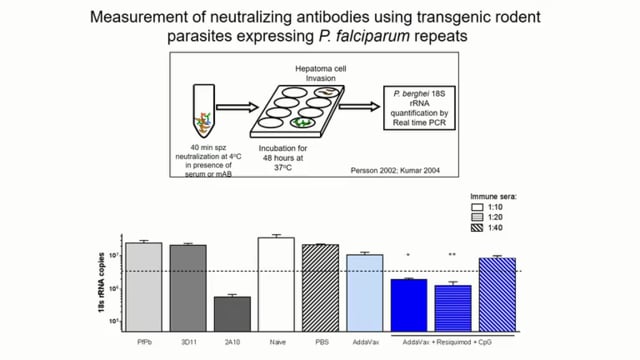Last Updated: 27/05/2025
Specificity of Plasmodium falciparum protein export
Objectives
To identify the chaperone(s) that confer specificity of Plasmodium falciparum protein export.
The malaria parasite Plasmodium falciparum exports several hundred proteins into its host cell to modulate nutrient uptake, infected RBC biophysical properties, adherence to vascular endothelium and host immune response. These exported protein effectors are synthesized in the parasite ER, traverse the secretory system and are then translocated from the parasitophorous vacuole (PV) into the host RBC. Most have a protein export element (PEXEL) that is essential for the export process but is cleaved co-translationally by the aspartic protease plasmepsin V. How the processed protein is recognized for export is not at all clear. Certain mutations in the mature N-terminus of PEXEL-containing reporter constructs can prevent export, but changing the mature N-terminus to all alanines does not impair export.
The hypothesis is that the export is the default pathway for secretory proteins and that specific mutations block export or promote PV retention. The project posits that these mutations dictate recognition by a chaperone. To establish this model, the chaperone(s) that confer specificity must be identified. To address these questions, Aim 1 will focus on the protein machinery that mediates export specificity. Export-destined and PV retained proteins will be pulled down from the PV and from the ER. Comparative proteomic analysis will be employed to identify key components of the export pathway. Proximity biotinylation will comprise a second approach to this analysis. Candidate interacting proteins will be validated in reciprocal pulldowns. This will pave the way for future reverse genetic and biochemical assessments. It is anticipated that the proposed studies will yield great insight into the mechanism of protein export that is so important to the pathogenesis of malaria. This work will potentially point the way to new therapies for this devastating disease.
Jun 2022 — May 2024
$236,250


